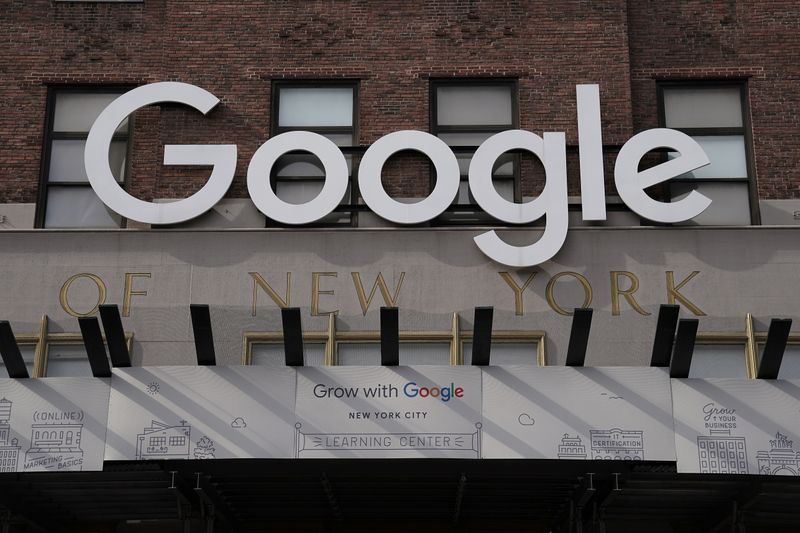WASHINGTON (Reuters) – The U.S. Department of Justice and 11 states filed their long-awaited competition lawsuit against Google on Tuesday – the most momentous antitrust showdown since Washington took on Microsoft Corp more than two decades ago – but experts warn that anyone expecting a major shake-up of the tech industry is likely to be disappointed.
Antitrust specialists see the upcoming action as more of a tremor than an earthquake. Even if the Justice Department takes the case to trial and wins, which is not guaranteed, any changes to the role played by Alphabet Inc’s Google in people’s lives are likely to be incremental – and years away.
“They shouldn’t see this as ‘the beginning of the end,'” said Eleanor Fox, a professor of trade regulation at the University of New York’s law school. “It certainly wouldn’t go to the guts of what some people think is wrong with Google.”
Critics have argued for years that Google and other Big Tech companies such as Amazon.com Inc and Facebook Inc have too much power and routinely abuse their dominant market positions.
But government efforts to rein in powerful technology companies have historically proven challenging.
In Europe, regulators have filed three different antitrust actions against Google over the past decade and imposed more than 8 billion euros ($9.46 billion) in fines in response to complaints over Google’s price comparison service, its Android mobile operating system, and its AdSense platform.
Christian Bergqvist, a professor of law at Denmark’s Copenhagen University, said the U.S. antitrust action showed the U.S. government was belatedly adopting the more tech-skeptical European approach.
“I think we are converging in some positive ways,” Bergqvist said.
Still, he said the European example held cautionary lessons. In a study published last month, an academic advising Google’s European competitors said the company’s price-comparison service was still flouting the EU rules.
Google denies the allegation. But it is clear that years of hefty fines have had limited impact on the market dynamics in Europe, where Google’s Chrome browser has an even larger share of the market than in the United States and Android remains dominant.
Previous U.S. antitrust lawsuits against Big Tech companies have also yielded mixed results. Microsoft largely prevailed in its 1990s showdown with the government, though many industry analysts believe the company’s troubles in the 2000s stemmed in part from the pressures and distractions of the antitrust case.
Similarly, the government ultimately dropped a 1980s antitrust lawsuit against IBM, though the company subsequently struggled. The government breakup of AT&T in 1984 is the counterpoint: that case brought a wholesale restructuring of the U.S. telecoms business that had broad impact on consumers and businesses alike.
FINE AND FORGET
The perceived failure of the fine-and-forget approach to Big Tech regulation has some critics pushing for solutions that look more like the AT&T breakup.
Ryan Shores, a U.S. Justice Department official, said on Tuesday that “nothing is off the table” when asked on a conference call what specific action should be taken. But legal observers were skeptical that government lawyers would go so far as to push for a breakup and in any case Bergqvist doubted the solution was workable.
“What is there to break up?” he asked. “Everything is free.”
Bergqvist said Google’s services were organized like a series of money-losing trenches protecting advertising, the company’s “cash cow.” Even if a couple of those trenches were taken over by competitors or transformed into a standalone business – such as YouTube or the Chrome browser, for example – Bergqvist said it was hard to see how they would survive on their own.
Absent an aggressive dismemberment of the company, experts believe a government victory or a settlement would likely lead to changes in how Google search works. But odds are they will not be sufficiently far-reaching for most people to notice a lot of difference.
“Google won’t be unaffected by this, but it’s unlikely that there’s going to be substantial shifts in market position – in any of its markets,” said Jonathan Rubin, whose Washington-based firm, MoginRubin LLP, specializes in antitrust law.
(Reporting by Raphael Satter in Washington; Editing by Jonathan Weber and Matthew Lewis)






















